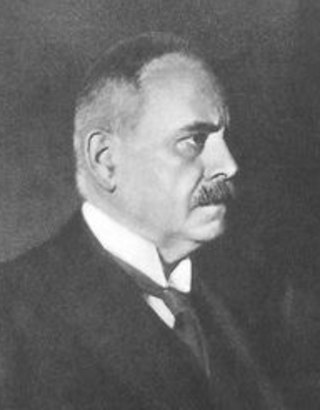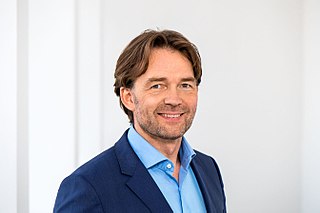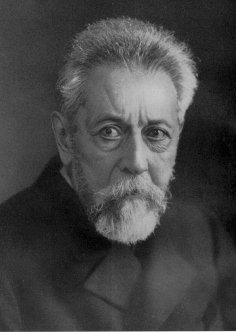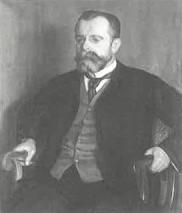Related Research Articles

Ferdinand Gotthold Max Eisenstein was a German mathematician who made significant contributions to number theory and analysis. Born in Berlin, Prussia, to Jewish parents who converted to Protestantism before his birth, Eisenstein displayed exceptional mathematical talent from a young age.

Kurt Scharf was a German clergyman and bishop of the Evangelical Church in Berlin-Brandenburg.

Jürgen Mittelstraß is a German philosopher especially interested in the philosophy of science.

Friedrich August Körnicke was a German agronomist and botanist born in Pratau. He was the father of agricultural botanist Max Koernicke (1874–1955).

Prof Sven Ludvig Lovén, was a Swedish marine zoologist and malacologist. The Sven Lovén Centre for Marine Sciences within the University of Gothenburg was named in his honour.

Susanne Baer, FBA is a German legal scholar and one of the 16 judges of the Federal Constitutional Court of Germany. Baer has been the William W. Cook Global Law Professor at the University of Michigan Law School since winter 2010 and is also a professor of public law and gender studies with the law faculty at Humboldt University of Berlin and its dean of academic affairs.

Heinrich Lüders was a German Orientalist and Indologist known for his epigraphical analysis of the Sanskrit Turfan fragmentary manuscripts.

Ernst Ferdinand Peschl was a German mathematician.
Werner Kutzsche was a German engineer, who was known for his work in the fields of radio-frequency engineering and electroacoustics.

Matthias H. Tschöp is a German physician and scientist. He is the chief executive officer and scientific director of Helmholtz Zentrum München, German Research Center for Environmental Health. He is also Alexander von Humboldt Professor and chair of metabolic diseases at Technical University of Munich and serves as an adjunct professor at Yale University.

Sergius Nikolajewitsch von Bubnoff was a geologist and geotechnical engineer with Germano-Baltic ancestry who made important contributions to the rebuilding of geological research in East Germany after World War II. Starting in 1922, he was a professor at the University of Breslau. In 1929 he became a professor at the University of Greifswald and in 1950, he started his professorship at the Humboldt-University of Berlin. The Bubnoff unit, which is the unit of measure for the speed of geological processes, is named after him.
Werner Scheler was a German physician and pharmacologist.
Hansjürgen Matthies was a German pharmacologist and neuroscientist.

Friedrich Carl Andreas was an orientalist of German, Malay, and Armenian parentage. He was the husband of psychoanalyst Lou Andreas-Salomé.
Jes Peter Asmussen, was a Danish Iranologist.
Ken'ichi Mishima, is a Japanese social philosopher and university professor.

Erich Marcks was a German historian.
Albert Johannes Köster was a German Germanist and theater scholar.
Peter Fratzl is an Austrian physicist and director at the Max Planck Institute of Colloids and Interfaces in Potsdam.
Hans-Georg Schweiger was a German cell biologist and a former director of the Max Planck Institute for Cell Biology.
References
- ↑ "Werner Sundermann (22.12.1935 - 12.10.2012)" (PDF). 2012-11-23. Retrieved 2025-02-01.
- ↑ "Deutsche Biographie - Sundermann, Werner". deutsche-biographie.de. Retrieved 2025-02-01.